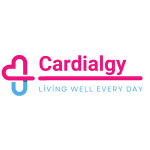Taggato: Angioplasty, Cardiologist Advice, Chest Pain, Heart Attack, Heart Attack Recovery, Heart Attack Risks, Heart Attack Symptoms, Heart Disease Prevention, Heart Health, Real-Life Stories
-
AutorePost
-
Dicembre 24, 2024 alle 10:05 am #4204
 ChesterPartecipante
ChesterPartecipanteTwo months ago, I had a heart attack, and it was the most terrifying experience of my life. At first, I didn’t even realize what was happening. Looking back, there were subtle warning signs that I dismissed as stress or fatigue. I want to share my story so others can recognize the signs early and take action before it’s too late.
How It Started
For weeks before the heart attack, I had been feeling:
– Unusual fatigue, even after a full night’s sleep.
– Mild chest discomfort that felt like pressure or tightness but wasn’t severe.
– Shortness of breath when climbing stairs, something I’d never experienced before.
– A nagging pain in my left shoulder and jaw that came and went.The morning it happened, the chest discomfort turned into a sharp pain, and I started sweating profusely. I also felt nauseous and lightheaded. That’s when I knew something was seriously wrong. I called 911, and the paramedics confirmed I was having a heart attack.
Doctor’s Warning: Common Heart Attack Symptoms
The emergency room doctor told me that heart attack symptoms vary, especially between men and women. Here’s what to watch for:
– **Chest pain or discomfort:** A feeling of pressure, tightness, or squeezing in the chest, often mistaken for indigestion.
– **Pain in other areas:** Pain or discomfort in the arms, back, neck, jaw, or stomach.
– **Shortness of breath:** Can occur with or without chest discomfort.
– **Cold sweats, nausea, or lightheadedness:** These symptoms are especially common in women.Did You Know?
– Someone in the U.S. has a heart attack every 40 seconds.
– Nearly 20% of heart attacks are silent, meaning the damage is done without noticeable symptoms.
– Quick action can save lives: Survival rates are highest when treatment begins within the first hour of symptoms.What Happened at the Hospital
The doctors performed an emergency angioplasty to open a blocked artery and placed a stent to restore blood flow. I was also put on medications to prevent future clots, manage cholesterol, and control blood pressure.Steps I’m Taking to Prevent Another Heart Attack
– **Diet:** I’ve switched to a Mediterranean diet, rich in fruits, vegetables, whole grains, and lean proteins.
– **Exercise:** My doctor recommended at least 30 minutes of moderate activity, five days a week.
– **Medications:** I take aspirin daily and other prescribed medications to manage my heart health.
– **Stress Management:** Yoga and mindfulness have become part of my daily routine.Advice from My Cardiologist
– Don’t ignore unusual symptoms, even if they seem mild.
– Call 911 immediately if you suspect a heart attack. Time is critical, and getting to the hospital quickly can save your life.
– Schedule regular check-ups to monitor your heart health, especially if you have risk factors like high blood pressure, diabetes, or a family history of heart disease.Sharing My Story to Help Others
If you’ve experienced a heart attack or are worried about your heart health, let’s discuss it here. Sharing stories and advice can help us all take better care of ourselves and our loved ones. -
AutorePost
- Devi essere connesso per rispondere a questo topic.